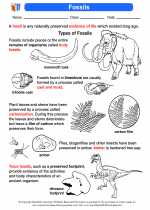CRISPR: An Overview
CRISPR, which stands for Clustered Regularly Interspaced Short Palindromic Repeats, is a revolutionary gene-editing tool that allows scientists to make precise changes to an organism's DNA. It has the potential to revolutionize fields such as medicine, agriculture, and biotechnology.
How CRISPR Works
CRISPR works by using a specialized protein called Cas9 to target specific sequences of DNA. The Cas9 protein is guided to the target DNA sequence by a small piece of RNA, which is designed to match the sequence of interest. Once the Cas9 protein binds to the target DNA, it can make a cut at that location, allowing researchers to either remove, add, or replace specific sections of the DNA.
Applications of CRISPR
CRISPR has a wide range of potential applications, including:
- Medical Research: CRISPR can be used to study the function of genes and their role in diseases, potentially leading to new treatments for genetic disorders.
- Agriculture: CRISPR can be used to create crops with improved characteristics, such as resistance to pests or enhanced nutritional content.
- Therapeutic Gene Editing: CRISPR has the potential to treat genetic diseases by correcting the underlying DNA mutations.
- Biotechnology: CRISPR can be used to engineer microorganisms for various industrial applications, such as biofuel production or environmental remediation.
Study Guide
Here are some key points to remember about CRISPR:
- What does CRISPR stand for?
- How does CRISPR work at a molecular level?
- What is the role of the Cas9 protein in CRISPR?
- What are some potential applications of CRISPR technology?
- How might CRISPR be used in medical research?
- What are some ethical considerations surrounding the use of CRISPR?
Understanding CRISPR and its potential impact on various fields is essential for anyone interested in genetics, biotechnology, or medical research.
.◂Science Worksheets and Study Guides Eighth Grade. Fossils

 Activity Lesson
Activity Lesson
 Worksheet/Answer key
Worksheet/Answer key
 Worksheet/Answer key
Worksheet/Answer key
 Worksheet/Answer key
Worksheet/Answer key
 Worksheet/Answer key
Worksheet/Answer key
 Vocabulary/Answer key
Vocabulary/Answer key
 Vocabulary/Answer key
Vocabulary/Answer key
